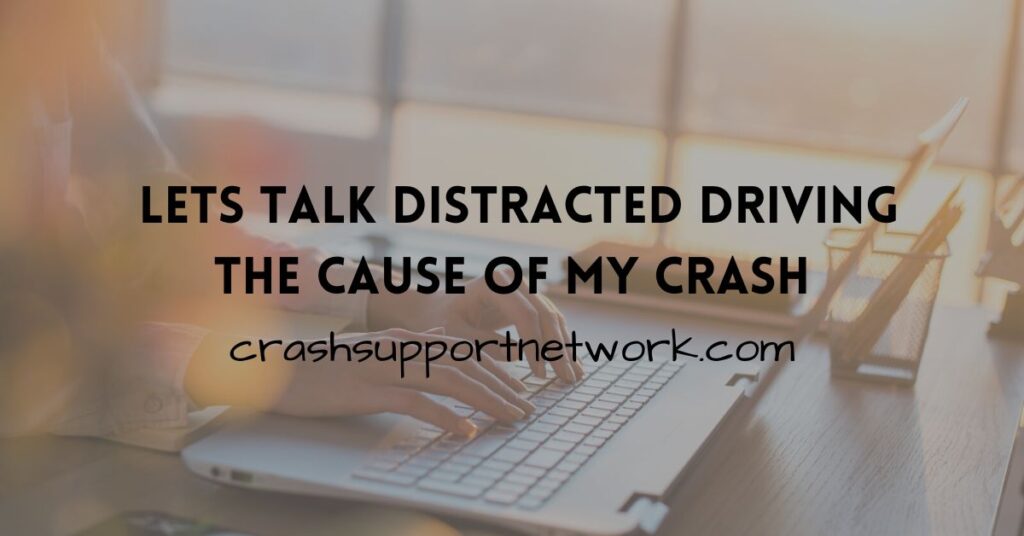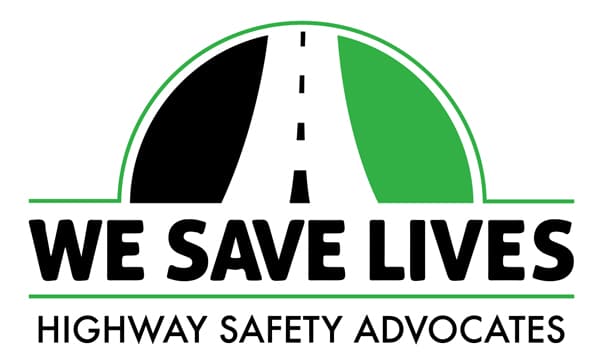
How many times have you been driving next to a car only to look over and see them staring down into their lap? I cannot begin to tell you how many times I continue to see it and find myself asking, “Why”? By now, we have all heard about the dangers of driving distracted and every province and country have some form of a distracted driving law in place to help deter distracted drivers but distracted driving continues to be a major issue on our roads.
When we first learn how to drive, we are told to always keep our eyes on the road and to watch what other people are doing. Perhaps as we get more comfortable behind the wheel and after years of practice, our priorities and attention shift? Do we think that we can get away with a text message or just look down for a moment? Take it from me, it’s not that simple.
I Cringe When I See Drivers Texting
As a victim of a horrific motor vehicle crash that was caused by a distracted driver, I just cringe when I witness a driver texting or eating their lunch while swerving all over the road. I am also in disbelief when I bring attention to someone that I see texting behind the wheel and they say “oh don’t worry about it, I am an excellent driver” or “I do it all the time and haven’t been in an accident yet”! My jaw literally drops when I hear people say this and I am also gob smacked when drivers seem astonished when they are pulled over and given a ticket for distracted driving.
I wonder how they would feel not being able to work and attending rehabilitation to try and fix multiple injuries sustained in a motor vehicle crash. I also wonder how they would feel living in my broken body for just one day. The woman that rear-ended me at a high rate of speed and pushed me into the path of a transport truck was distracted and the incident changed my life in a few seconds. It was those same few seconds that seemed so important to her that distracted her from paying attention to the road and more importantly, to pay attention to what was in front of her which was me.
The thing is, it doesn’t matter how good of a driver you are or whether or not you have been in a motor vehicle crash before. There is not one driver that can predict each and every move of other drivers, pedestrians or cyclists around them and it only takes a split second for something to change.
There Are Three Types of Distractions
- Visual Distraction – This is any distraction that takes a driver’s eyes off the road. Whether it be applying makeup, checking a phone or GPS, or looking at a passenger. If your eyes aren’t attentive to the traffic in front of you, then you are visually distracted.
- Cognitive Distraction – Cognitive distractions happen when the driver’s attention is diverted to any task other than driving. This can include talking on the phone, talking to another passenger, being preoccupied with a personal matter or thinking about the workday ahead. Drivers who interact with the people in their car more often than they look at the road can be quite dangerous.
- Manual Distraction – Distractions of this sort involve the driver physically taking their hands off the wheel to perform another task. It often goes hand in hand with cognitive distractions and includes eating, texting, fiddling with dashboard controls, and more.
Eating while driving is also one of the more common forms of distracted driving. We all have long trips and rushed mornings where stopping for fast food or coffee is our quickest option but eating while driving can be extremely dangerous. It only takes a split second for you to look away from the road for someone to cut you off, a child to chase a ball, or any other obstacle to present itself which can change your life forever.
You Need To Be Fully Engaged As a Driver
You also don’t even have to be the one who is distracted or careless behind the wheel to experience the effects. Other distracted drivers may cut you off in traffic, drift into your lane or take other unsafe actions that they’re not even aware of. Even if you are following all the proper guidelines for safety, other drivers on the road with you may not be. You, your passengers, other motorists, and pedestrians rely on you to be fully engaged in driving while you’re on the road in order to protect their lives.
Here are seven things to prevent you from driving distracted:
- Keep your mobile phone on silent and out of reach. This is one of the best ways to avoid the temptation to look at your phone when driving. For most drivers, it’s like a tap on the shoulder and hard for them to ignore.
- Make adjustments before you start moving. Put your seat in the right position, adjust mirrors, get comfortable, find everything that you may need and put the vehicle into drive.
- Park to eat. While you may want to jump back on the road after going through a drive thru for fast food or a coffee, staying in the parking lot for a few extra minutes could help prevent a serious collision. You have to stop and ask yourself, “What’s the rush?”
- Get directions before you leave. Trying to read a map or program a GPS while driving requires more attention than you can spare. If you need to change your destination while driving, pull over to update the directions. Thankfully, most vehicles will not allow you to change directions on a GPS while the vehicle is in motion.
- Limit passenger distractions. Passengers can be distracting. No matter your age, ask passengers to watch the road with you, and to be quiet if you are having a hard time concentrating. If travelling with kids, try to have activities within their reach in the back seat to keep them occupied.
- Speak up! If you’re a passenger in a vehicle where the driver is driving with distractions, speak up. Ask them to focus on their driving because your life is in their hands and they need to be aware of that.
- Be a good role model. If you are a parent, you are the most important influence on your teen when it comes to learning to drive. This means you can make a big difference by being a good role model. Talk to your teen drivers about safe driving practices and constantly remind them.
According to the National Safety Council, mobile phone use while driving leads to 1.6-million crashes annually and I continue to commend law enforcement for working as hard as they do when it comes to recognizing distracted drivers. Looking at the road is your most important job as a driver. For goodness sakes, nothing is that important so please put your phone away. It can wait!
S. Dawne McKay is a survivor of a horrific crash that changed her life forever. Dawne shares her personal journey as a Crash Survivor Blogger and also collaborates with crash survivors as Guest Bloggers allowing them an opportunity to share their stories. Dawne is also the author of the book, “Talk Crash to Me – What to Expect After Surviving a Collision and How to Manage Your Recovery” which is available for purchase on Amazon.
The Crash Support Network is a unique one-of-a-kind website consisting of an online support group, a crash survivor blog, a quarterly newsletter, “Sharing Our Recovery” as well as highly informative articles. Our website is based on relationship-building and puts the needs of survivors first by creating a helpful resource for victims and survivors of motor vehicle crashes.





